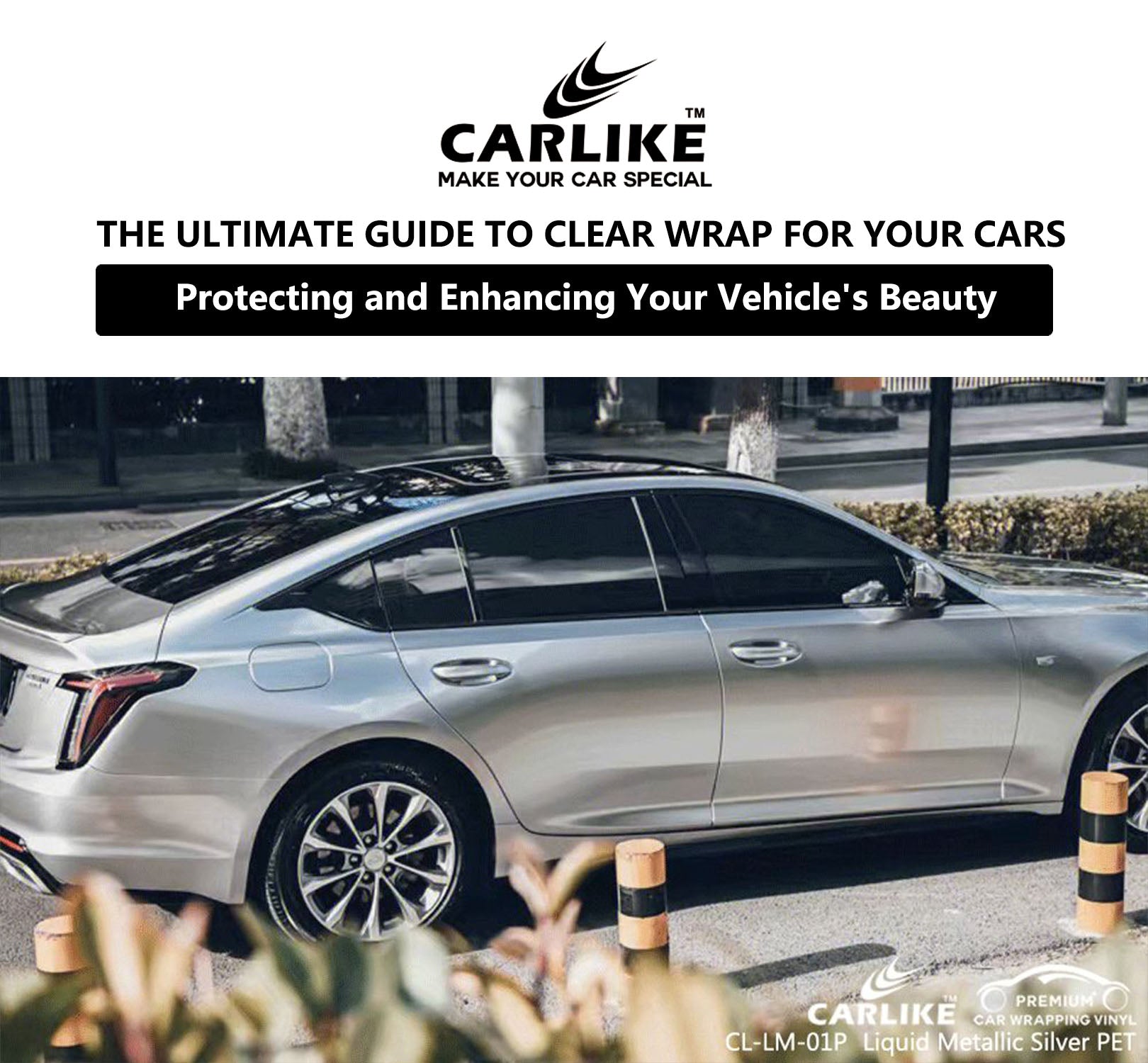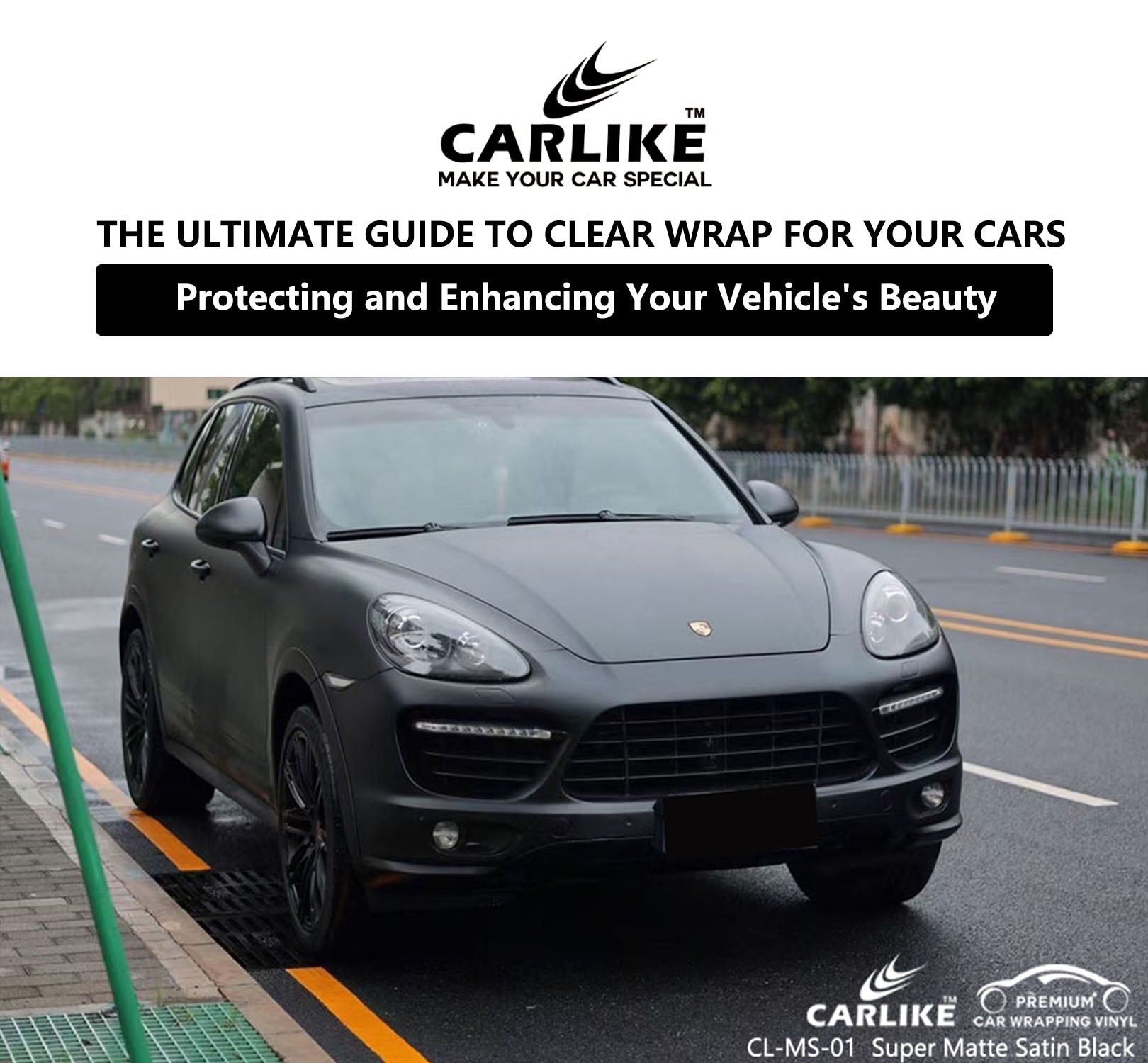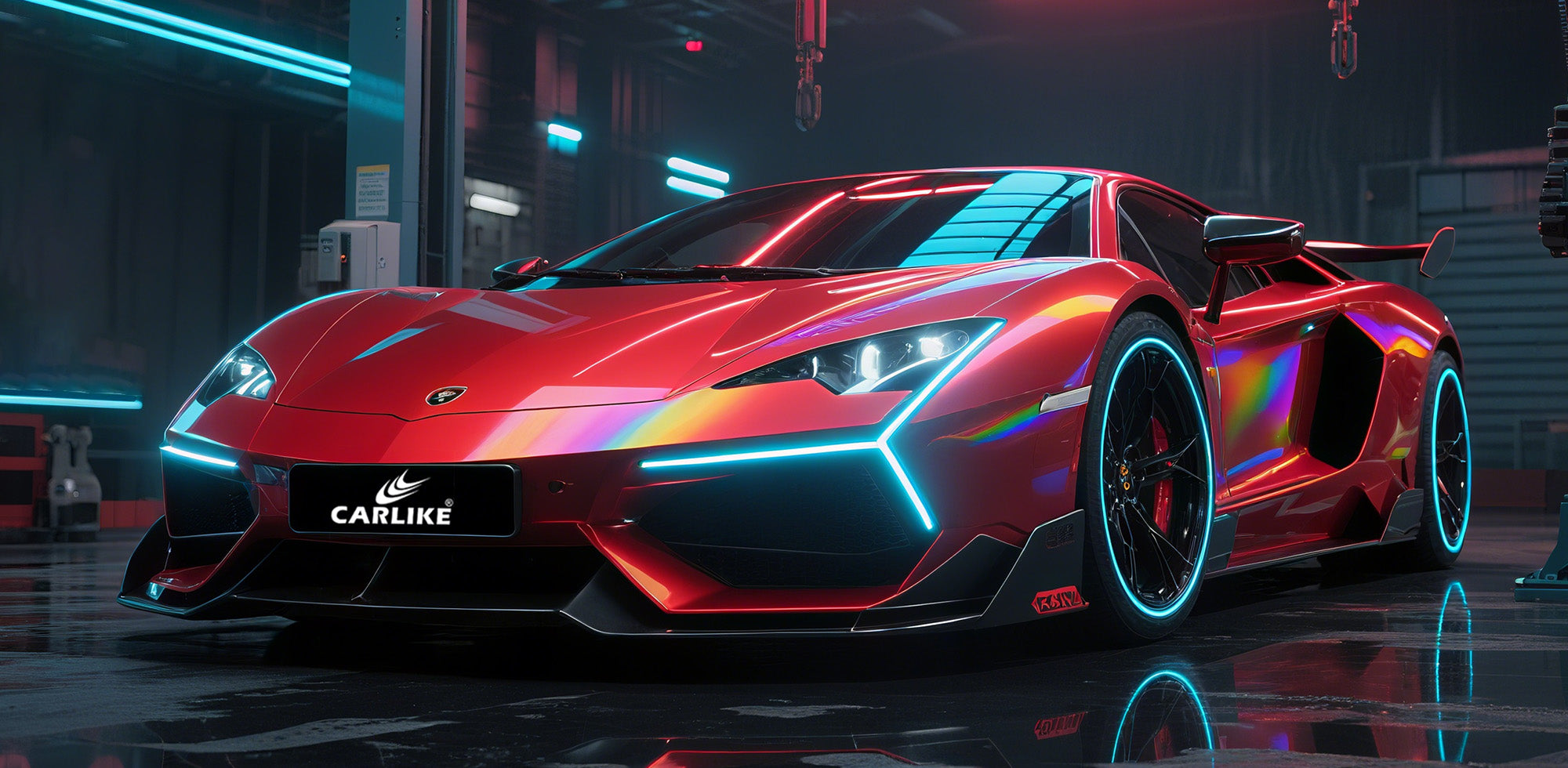Factors Affecting Cost to Wrap a Car : Understanding the Variables
1. Type and Quality of Wrapping Material: One of the primary factors influencing cost to wrap a car is the type and quality of the wrapping material chosen. Various options are available, including vinyl, carbon fiber, matte finishes, and more. Each material comes with its own price range, with high-quality and specialty materials generally commanding a higher cost. The choice of material will depend on personal preference, durability requirements, and the desired aesthetic appeal.
2. Vehicle Size and Complexity: The size and complexity of a vehicle play a significant role in determining the overall cost to wrap a car project. Larger vehicles, such as trucks or SUVs, typically require more material and labor, resulting in higher costs compared to smaller cars. Moreover, the shape and design intricacies of the vehicle, such as curves, body contours, and challenging areas, can increase the time and effort required for a seamless installation, contributing to the overall cost.
3. Color and Finish Options: Car wrapping offers a wide range of color and finish options, allowing car owners to achieve their desired look. However, certain colors and finishes may involve additional costs. For example, custom or specialty colors, metallic finishes, or textured wraps might be more expensive compared to standard color options. It's important to consider these factors while selecting the color and finish for your car wrapping project.
4. Surface Preparation and Vehicle Condition: Before the car wrapping process can begin, the vehicle's surface needs to be properly prepared. This includes thorough cleaning, removal of dirt, grease, or debris, and addressing any existing imperfections, such as scratches or dents. If extensive surface preparation is required, it may add to the overall cost to wrap a car. Additionally, the condition of the vehicle itself, including its paintwork, will influence the cost, as any necessary repairs or corrections may be needed before wrapping.
5. Design Complexity and Customization: If you're looking for a custom design or intricate graphics as part of your car wrapping, it's important to consider the complexity and level of customization. Intricate designs, logos, or patterns require additional time and expertise, which can impact the overall cost. Discussing your design requirements with a professional car wrapping service will help determine the feasibility and associated costs.
6. Professional Installation and Expertise: The skill and expertise of the car wrapping professional or service provider can also influence the cost. Experienced and reputable installers may charge higher rates due to their expertise, quality of work, and attention to detail. While it may be tempting to opt for cheaper alternatives, it's crucial to strike a balance between cost and quality to ensure a satisfactory end result.

Types of Car Wrapping Materials: Their Costs and Benefits
When it comes to car wrapping, the choice of material plays a crucial role in achieving the desired aesthetic appeal, durability, and overall cost. Car owners have a range of options when it comes to wrapping materials, each offering unique characteristics and benefits. In this blog post, we will explore the different types of car wrapping materials, discuss their costs, and highlight the advantages they bring to the table. By understanding the options available, car owners can make informed decisions when it comes to selecting the most suitable material for their car wrapping project.
1. Vinyl Wraps: Vinyl wraps are among the most popular choices for car wrapping due to their versatility, durability, and wide range of color and finish options. They come in various grades, from economy to premium, with corresponding differences in price and quality. Vinyl wraps provide excellent protection for the vehicle's original paintwork, shielding it from scratches, UV rays, and other environmental elements. Moreover, vinyl wraps can be easily removed without damaging the underlying paint, allowing for easy changes or restoration.
2. Carbon Fiber Wraps: Carbon fiber wraps offer a unique and distinctive appearance, mimicking the look of real carbon fiber without the hefty price tag associated with actual carbon fiber panels. These wraps are known for their textured finish and high-gloss appearance, adding a sporty and luxurious touch to any vehicle. Carbon fiber wraps provide enhanced protection against scratches and are resistant to fading, making them a popular choice for car enthusiasts seeking a premium aesthetic.
Professional Car Wrapping vs. DIY: Which Is More Cost-Effective?
Car wrapping has become an increasingly popular option for car owners looking to transform the appearance of their vehicles. One question that often arises is whether it is more cost-effective to opt for professional car wrapping services or tackle the project as a do-it-yourself (DIY) endeavor. In this blog post, we will explore the factors that influence the cost-effectiveness of professional car wrapping versus DIY methods. By considering the various aspects involved, car owners can make an informed decision based on their budget, skill level, and desired outcome.
1. Expertise and Skill: Professional car wrapping services offer the advantage of expertise and experience. They have the necessary training and knowledge to ensure a high-quality installation that adheres to industry standards. This expertise minimizes the risk of errors, such as air bubbles, wrinkles, or improper alignment, which could impact the overall appearance and longevity of the wrap. DIY car wrapping requires a significant amount of skill, precision, and attention to detail. While it is possible to achieve satisfactory results with practice and patience, the learning curve can be steep for beginners.
2. Time and Effort: Car wrapping is a time-consuming process that requires careful preparation, meticulous application, and post-installation finishing touches. DIY car wrapping can be a lengthy endeavor, especially for individuals who are new to the process. On the other hand, professional installers have the experience and efficiency to complete the job in a shorter timeframe. If time is a constraint or if the car owner prefers a quicker turnaround, professional car wrapping may be more suitable.
3. Cost Considerations: When comparing costs, it is essential to consider both the short-term and long-term perspectives. DIY car wrapping may initially appear more cost-effective, as it eliminates labor costs associated with professional services. However, DIY projects are more prone to mistakes, which can result in wasted materials and the need for rewrapping. Additionally, the cost of tools, equipment, and potential repairs can add up, especially for beginners. Professional car wrapping services offer a fixed cost, inclusive of labor, materials, and installation. They also provide warranties or guarantees on their workmanship, which can be advantageous in case of any issues.
Hidden Expenses: Additional Costs Involved in Car Wrapping
1. Removal of Previous Wraps or Paint Correction: If the vehicle has a pre-existing car wrap or paintwork that needs to be removed before the new wrap is installed, there may be an additional cost associated with the removal process. Removing old wraps or correcting damaged or peeling paintwork can be time-consuming and labor-intensive. Depending on the condition of the previous wrap or paint, it may require specialized techniques or products for safe and efficient removal, which can result in added expenses.
2. Design Customization: Customizing the design of the car wrap, such as incorporating unique graphics, logos, or intricate patterns, can increase the overall cost. The complexity of the design and the additional time and effort required for precise installation contribute to the additional expenses. Car owners should communicate their customization requirements with the car wrapping professional to understand any associated costs and ensure that their vision aligns with their budget.
3. Post-Installation Finishing and Trimming: After the car wrap is applied, there may be a need for post-installation finishing and trimming to ensure a clean and polished look. This process involves trimming excess material, tucking edges, and applying heat to smooth out any imperfections or creases. Depending on the complexity of the vehicle's shape and design, additional time and expertise may be required for the finishing touches, resulting in additional costs.

FAQ for cost to wrap a car?
Q: How much does it cost to wrap a car?
A: The cost of wrapping a car can vary depending on several factors, including the size of the vehicle, the type of material used, the complexity of the design, and the region or location. On average, a full car wrap can range from $2,000 to $5,000, but prices can go higher for larger vehicles or specialty materials.
Q: What factors influence the cost of car wrapping?
A: Several factors can influence the cost of car wrapping. These factors include the size of the vehicle, the type and quality of the wrapping material, the complexity of the design, the condition of the vehicle's surface, and the expertise and reputation of the car wrapping service provider.
Q: Is it cheaper to wrap a car or repaint it?
A: Generally, car wrapping tends to be a more cost-effective option compared to repainting a car. Repainting a vehicle can involve substantial costs for materials, labor, and potentially additional repairs. Car wrapping provides a more affordable way to change the vehicle's appearance without the need for extensive preparation or repainting.
Q: How long does a car wrap typically last?
A: The lifespan of a car wrap can vary depending on factors such as the quality of the material used, the care taken by the car owner, and environmental conditions. On average, a well-maintained car wrap can last between 5 to 7 years. However, specialty or premium wraps may have a longer lifespan.
Q: Can I remove a car wrap myself, or should I hire professionals?
A: While it is possible to remove a car wrap yourself, it is recommended to hire professionals for the best results. Professional installers have the necessary tools, techniques, and experience to remove the wrap safely without damaging the vehicle's paintwork. DIY removal can be challenging and may lead to unintended damage.
Final Words
By budgeting accordingly, researching reputable professionals, and weighing the costs against the desired outcome, car owners can make an informed decision that suits their budget and ultimately enhances the appearance and protection of their vehicles. Whether it's a full car wrap or a partial design, investing in quality materials and professional installation can ensure a satisfying and cost-effective car wrapping experience.








